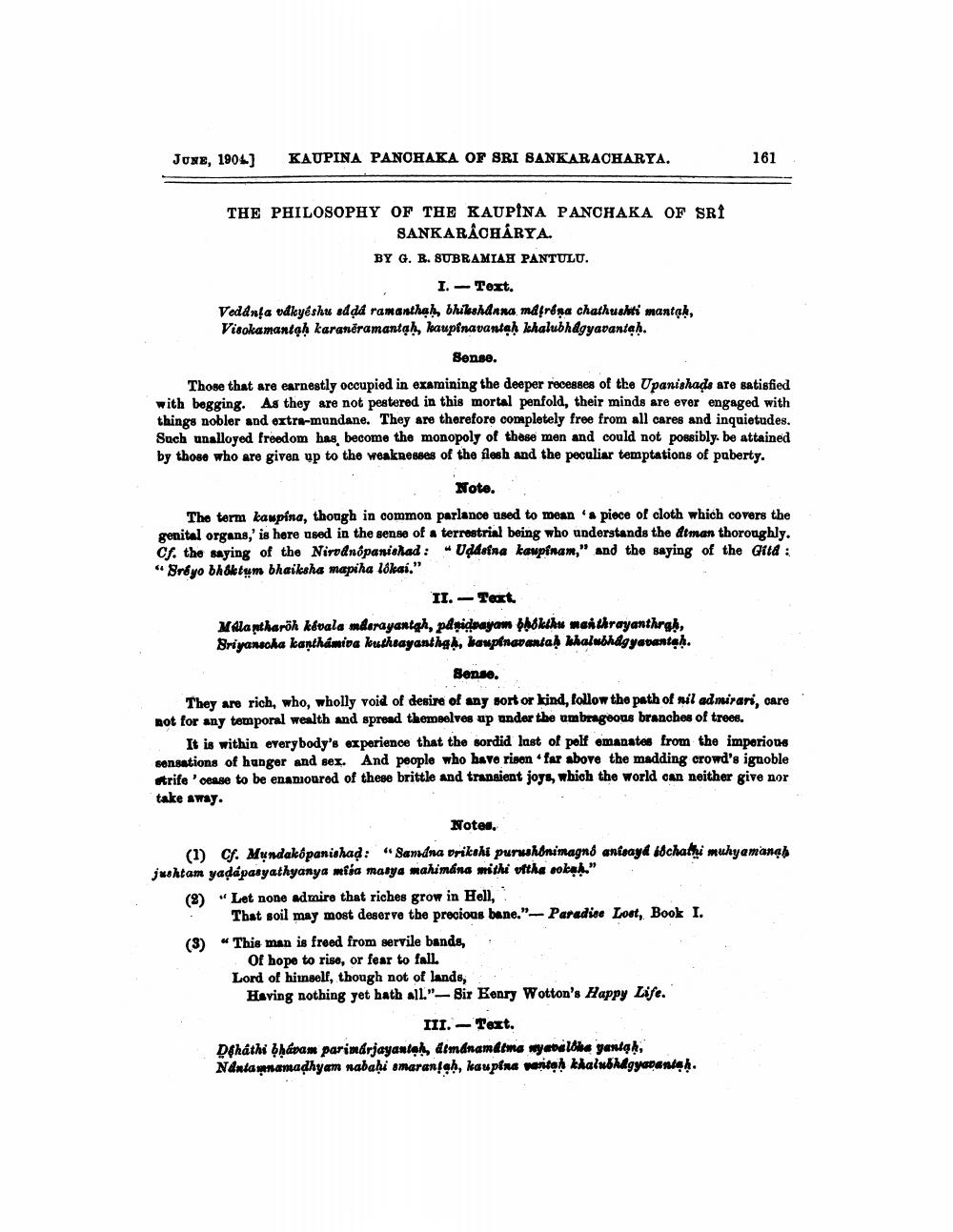________________
JUNE, 1904]
KAUPINA PANCHAKA OF SRI SANKARACHARYA.
THE PHILOSOPHY OF THE KAUPINA PANCHAKA OF SRI SANKARACHARYA.
BY G. B. SUBRAMIAH PANTULU.
I. - Text.
Vedanta vakyéshu sddá ramanthah, bhikshanna másréṇa chathushti mantak, Visokamantaḥ karaneramantah, kaupinavantaḥ khalubhagyavantaḥ.
Sense.
Those that are earnestly occupied in examining the deeper recesses of the Upanishads are satisfied with begging. As they are not pestered in this mortal penfold, their minds are ever engaged with things nobler and extra-mundane. They are therefore completely free from all cares and inquietudes. Such unalloyed freedom has become the monopoly of these men and could not possibly. be attained by those who are given up to the weaknesses of the flesh and the peculiar temptations of puberty.
Note.
The term kaupina, though in common parlance used to mean a piece of cloth which covers the genital organs,' is here used in the sense of a terrestrial being who understands the atman thoroughly. Cf. the saying of the Nirvanôpanishad: "Udasina kaupinam," and the saying of the Gita: "Bréyo bhaktum bhaiksha mapiha lokai."
II. - Text.
Millantharoh kévala mderayantah, panidsayam bhokihu manthrayanthraḥ, Briyanscha kanthámiva kutheayanthah, kaupínavantaḥ khalubhagyavantah.
161
Sense.
They are rich, who, wholly void of desire of any sort or kind, follow the path of nil admirari, care not for any temporal wealth and spread themselves up under the umbrageous branches of trees.
It is within everybody's experience that the sordid last of pelf emanates from the imperious sensations of hunger and sex. And people who have risen far above the madding crowd's ignoble strife 'cease to be enamoured of these brittle and transient joys, which the world can neither give nor take away.
Notes.
(1) Cf. Mundakôpanishad: "Samdna vrikshi purushonimagnó anisayá sochathi muhyamanah jushtam yaḍápasyathyanya misa masya mahimána mithi vitha sokah."
(2) Let none admire that riches grow in Hell,
That soil may most deserve the precious bane."- Paradise Lost, Book I.
(3) This man is freed from servile bands,
Of hope to rise, or fear to fall.
Lord of himself, though not of lands,
Having nothing yet hath all."-Sir Kenry Wotton's Happy Life.
III.-Text.
Dahathi bhavam parimárjayantah, dimanamátma wyavaloka yantaḥ, Naniamnamadhyam nabaḥi smarantah, kaupina vantah khalubhagyavantaḥ.




